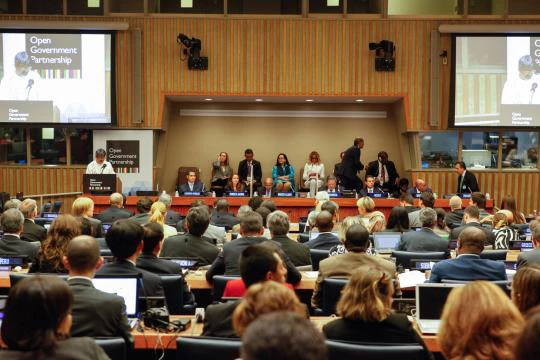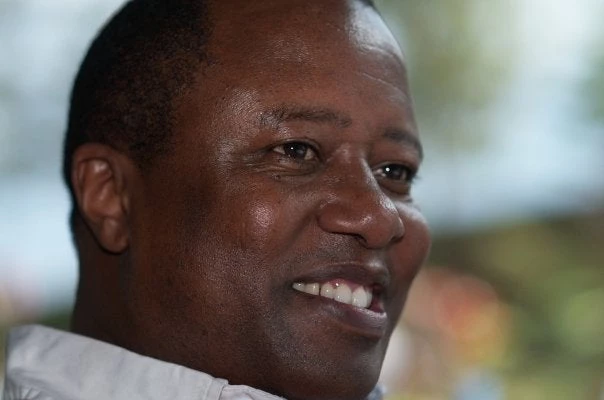
Photo Credit: OGP/Evan Abramson
Today, we face a fundamental question: How can we ensure that development is done as effectively and inclusively as possible? Openness is the answer.
Openness captures the very essence of international development in the 21st century.
At its core, openness is the idea that citizens and governments can work together to achieve better results for all.
Open government - increased disclosure of information and enhanced citizen participation in government decision-making is a powerful way to address the complex governance and development challenges we have faced for so long.
In recent years, the uptake and momentum behind open government has grown substantially. In our recent Global Opening Government Survey, over 61% of citizens surveyed reported that they wanted their governments to be more open.
The Open Government Partnership (OGP) - a multi-stakeholder initiative bringing together governments and civil society to advance openness - has grown from 8 to 65 countries in the 3 years since it was created.
Yesterday in New York, at a high-level event of the OGP in the context of the United Nations General Assembly, representatives from governments and civil society alike highlighted the value that results from openness.
Rakesh Rajani, OGP Civil Society co-chair, spoke about “the potential of re-imagining government” through openness, while President Barack Obama stated that “open and honest collaboration with citizens and civil society...makes countries stronger and it makes countries more successful”.
Open for Development
Openness is the key to inclusive and effective development. Here’s why:
Openness benefits governments. Governments that are more open are governments better positioned to effectively manage and allocate public resources. Through modern and open data and information systems, as well as through transparency in government operations and transactions, governments can build a strong foundation for optimal use of resources and for enhanced efficiency.
Openness benefits citizens. Open governments are built on robust and inclusive engagement between citizens and governments. Fluid two-way communication between citizens and governments allows governments to better understand citizens’ true needs and to respond to those needs. Furthermore, it sets the stage for governments and citizens to build trust with each other and to work together to co-create innovative solutions to common challenges. Open governments are governments better positioned to promote inclusive growth, by increasing their ability to provide all citizens the goods and services that citizens need and deserve.
Openness benefits the private sector. By creating more transparent and open processes, governments can create more stable conditions to incentivize private investment. Also, by opening up public contracts, many of which are implemented by the private sector, openness can level the playing field for businesses allowing them to compete within clear and fair conditions . By increasing collaboration with the private sector, governments that are more open are also better positioned to work in partnership with the private sector in the context of solving challenges and promoting economic growth and development.
Openness is our chance to reinvent government. Openness is our opportunity to usher a new era of good governance. Ultimately, openness is our path towards a brighter future for all.
Watch this video to learn more about the World Bank´s efforts on Open Government:





Join the Conversation